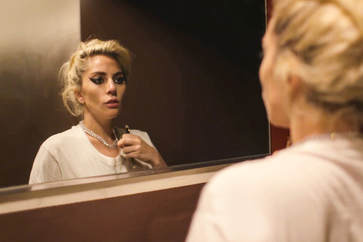So, is transparency actually a good thing? Well, like all new concepts it requires change and honesty, two things that most people do not like at all, so it is probably fair to say that complete transparency is not going to appeal to a lot of people. It also depends greatly upon who is delivering the 'transparent' point of view as well, because this buzz for transparency can also give a lot of nit-picking assholes a super platform to be checking everyone all of the time in the name of 'transparency' and this kind of power in the wrong hands is a recipe for disaster and a sure fire way to build resentment, potential conflict and general unrest.
Clearly there is a need for moderation and mastery when it comes to total transparency, but that doesn't mean that we should put it into the 'too hard basket' or avoid it altogether just because it has the potential to trigger us or make us feel self conscious. Already the world has become a better place because we have advocated for transparency. Due to our ability to be more honest about others and ourselves there is a lot less underhanded oppression, abuse and manipulation in the world today. Hundreds of everyday villains have since been outed and held accountable for their behaviours and this type of liberation through transparency can only ever be seen as positive growth for humankind.
People are more empowered than ever to speak their truth, be their authentic selves and share their stories now that we have an open forum for honest self expression. We are now better than ever at talking through our troubles, doubts, illnesses and hang ups and this proves that when transparency works, it really works well. However, we cannot forget that when transparency is wielded by the hands of haters or oppressors that it is actually a destructive force of evil and at it's essence deeply disempowering and manipulative.
Basically, you cannot just assume that everyone is going to be able manage an advocacy for transparency, especially in the workplace. Truth be told, not many people are going to be comfortable with the very real conversations that will come with complete transparency and without adequate training, most people will struggle to implement it well. That is why the real meaning of transparency needs clear and accurate definition to begin with before there can be any expectation of success around it.
Simply put, transparency can never be used in an accusatory or manipulative manner. What it advocates is honesty, but that honesty has to be delivered without blame, shame or judgement. Not an easy concept to wield because as soon as people start getting in touch with their personal truth, they become emotionally invested and that is where transparency starts to tilt. Rather than it being about building relationships and getting everyone on the same page, it becomes muddied by individual advocacy and agenda. And that is why no-one can assume that transparency will be the magical 'fix all' mode that will solve all workplace and social problems.
Without decorum, compassion and exceptionally high interpersonal skills, transparency as a 'go to tool' is in danger of starting more fires than it can extinguish, which means that delivering it well will require a high functioning environment with a group of highly developed individuals to ensure complete success. And the bottom line to that? Well, if your workplace is going to advocate for transparency then they have an obligation to train their staff and also recruit that right types of people to make that happen.
The great news is that you can actually start to build your own personal abilities around transparency immediately, which will give you an edge in the workplace and make the transition to a transparent environment a little easier for you in the long run. Here are my top ten do's when it comes to promoting and delivering transparency in the workplace:
1. Don't keep things secret, especially when it comes to job responsibility or function.
2. Be proactive, not reactive. If something isn't working suggest a meeting of minds to really explore other options.
3. Share results, good and bad, around your workplace. This will save people making similar mistakes or having to 'reinvent' the wheel.
4. Know where to draw the line. Transparency isn't about knowing everyone's business, it's about making sure that everyone has the same level of information to do their job well.
5. Be willing to have some difficult conversations. Sometimes the only way to fix a problem is to address it head on. Don't avoid uncomfortable conversations, but really consider the best ways to fix the problem before you even engage, and try not to take negative feedback personally but view it as a chance to see yourself from another perspective.
6. Be genuine, people will trust you more if you are not being fake.
7. Be tolerant. Remember that everyone is more than likely doing the best with the skill set that they have and some people will require more support and training to get to where they need to be - and that's okay.
8. Don't do things unless there is an ultimate goal being met. If you can't state the purpose behind your actions clearly, then you don't need to do it at all.
9. Trust others. Loads of people make their own work harder my micromanaging, controlling the flow of information or not trusting their team to deliver. Remember that you are only as strong as your weakest link and having one person with all of the knowledge is not being transparent.
10. Be personable. Chat to your co-workers and get to know the staff that you work with on a level beyond professional. You don't need all the details to get an understanding of how a colleague is feeling in their role, their passions and their personal ideals and knowing these things will help you to resolve an issues that may arise in the future.
So, there you go, a quick start guide to getting your head around transparency and how to make it work for you. Consider your ability to be 'gently transparent' a work in progress, it's something that really does take a long time to develop and years of practise to master. I am a true novice on the topic myself, so in a way we are beginning this journey of improved transparency together.
I wish you well in your pursuit of improved professional and personal relationships. And like all new journeys, make sure you are prepared to make mistakes and also own them along the way!

Release Date: 2017
Rating: M
Running Time: 100 mins
A cinema verite, Netflix Original documentary, outlining a year in the life of singer/songwriter Lady Gaga. By documenting the main events of her life whilst in production of her fifth album Joanne, we get an intimate peek into who Lady Gaga is as a person and a performer through her relationships both on and off the stage.
There is no doubt that Lady Gaga has managed to push the envelope at every turn of her career, and this is certainly no exception. At times she appears vulnerable and sheds many tears during the course of the film over her physical pains, insecurities and her family's history. And then at other times she comes across like a hurricane of energy, calling all the shots and behaving like a control freak and an ego-maniac.
She is clearly capable of holding her own and wrangling many tasks at one time, but she constantly appears to be moving around with an entourage of people by her side and she is literally never alone in front of the camera during the movie. I think that made it hard to tell, even from this expose of her life, who she really is when the cameras are not rolling and the audience has been removed.
Love her or hate her, this is definitely an interesting viewing. Although I still don't feel any closer to knowing who 'the real' Lady Gaga really is, I cannot deny that she is a talented powerhouse who will no doubt continue to be influential in both the music and fashion industry for many years to come.
FINAL SAY: A Perfect Illusion
3 Chilli Peppers

 RSS Feed
RSS Feed